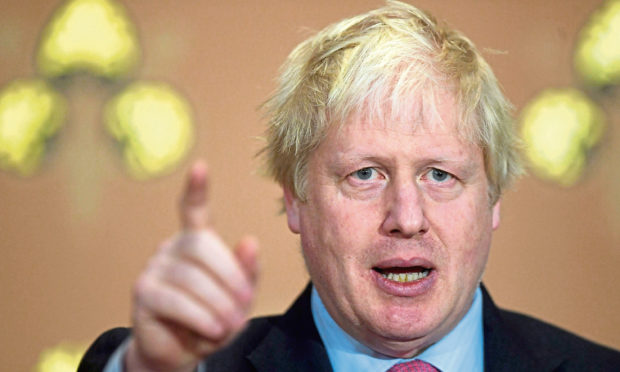Supporters of Boris Johnson believe his latest ploy to propel himself on to the front pages has revived his Tory leadership chances and given him another possible crack at Number 10.
How wrong they are. The stunt, now named Burkagate, has certainly raised his profile after a spell in which he seemed to have lost all momentum and his plum cabinet job. But by using his weekly newspaper column, which he resumed in the wake of his resignation as Foreign Secretary, to ignite a debate about Muslim women wearing the burka and niqab, he has revealed his shortcomings as never before.
In his article, published just over a week ago, he actually argued against banning the burka but then undermined his progressive stance by saying those who wore it looked like “letter boxes” and “bank robbers”.
Whether you are pro or anti-Boris, it seems to be agreed that the man, for all his apparent bumbling, is clever and politically astute. It follows, therefore, that he knew exactly what he was doing when he penned this provocation and, like a skilled chess player, had anticipated the next moves.
The most predictable of these were the howls of outrage from within his ranks. In a damage limitation exercise, the Conservatives have launched an inquiry into his behaviour and there have been calls to have Mr Johnson kicked out of the party. And of course he has been condemned by the left for unapologetic racial stereotyping and stirring up prejudice.
The counter-effect has seen Mr Johnson lauded as the one, true champion of free speech in a hysterical world of political correctness and over-reaction. This he will be pleased with, as it was surely part of the strategy. But if he is not genuinely a racist, will he be so thrilled by the warm praise he has won from those who are?
And if such odious endorsement was also included in his calculations, should we not now question his suitability to be in any position in public life?
One frequently rehearsed defence of Mr Johnson has been that if mocking Christians is acceptable – in The Life Of Brian, for example – why should other faiths be off limits? But the stark difference between Monty Python’s humour and Mr Johnson’s (he was trying to be funny) is that they satirised the establishment, while he belittles a minority. In picking on Muslim women, in fact, he singles out the most defenceless section of that minority, knowing they will not answer him back.
In the immediate aftermath of his comments, life has been made harder for the victims of his derision, with evidence of an increase in incidents of abuse against women wearing niqabs.
“There are individuals on the street who heard the exact same terminology that Boris Johnson used and that has been recorded,” said Miqdaad Versi, assistant secretary general of the Muslim Council of Britain, on the Today show on Monday.
Mr Johnson deliberately sought to inflame the Muslim-baiting constituency – he must have known that his remarks would give licence to others even less guarded than himself.
A former aide to David Cameron, Lord Cooper, said: “The rottenness of Boris Johnson goes deeper even than his casual racism and his equally casual courting of fascism. He will advocate literally anything to play to the crowd of the moment.”
Mr Johnson has shown since his dithering over Brexit he will go to any extremes if he thinks they will further his career. Until now, his blunders have mostly rebounded on him and his followers. But this time he has dragged in an already-vulnerable demographic and declared open season on them. His “jokes” have unveiled a darker dimension to his character and the sooner he is out of British politics, the better.
